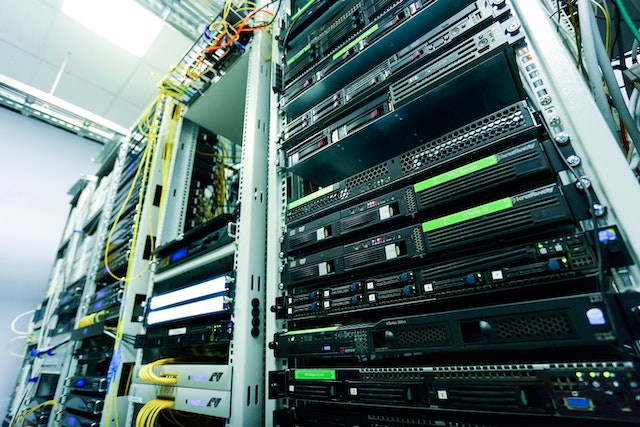
Electronics recycling had already established itself as a valuable industry by 2019 due to its focus on sustainability. Datacenter recycling has become a standard service, and experts predicted cloud recycling to be the next step for recyclers. Server decommissioning projects have increased significantly, and the industry has moved towards cloud migration.

However, the latter is complex and can be immensely challenging, especially since organizations like CompuCycle offer absolute data security. Unlike other cases, cloud data cannot be erased by shredding a single device. Hence, we need to find ways to accomplish our goals.
This blog will explain cloud migration and the challenges recyclers face for cloud migration during data center or server decommissioning.
What Is Cloud Migration?
Cloud migration refers to transferring a company’s digital assets, applications, databases, etc., onto a cloud. It can also refer to shifting all these elements from one cloud to another when you decide to upgrade or decommission the data center.
The process is relevant for recycling because you’ll need to ensure none of your data remains on the previous cloud or data servers getting decommissioned.
Data Center Decommissioning Challenges for Cloud Recycling
Data center or server decommission projects are complex and require professional teams for process handling. There are two steps when such a situation: hire IT experts for cloud migration and electronic waste recyclers to decommission old servers.
Hiring recyclers is a must to protect your data security, but they face specific challenges regarding cloud recycling.
1. Data Exists on the Internet
Removing data that exists on the internet is a challenging task, primarily if you work with a multi-cloud. Multi-clouds combine private and public clouds; hence, recyclers must conduct comprehensive wiping to remove all data from the cloud.
The typical wiping techniques don’t apply since they are more suited for the information only existing on a unit’s hard drive. However, cloud-based databases retain data for some time to keep the option to restore it later. Hence, recyclers need to remove it entirely from the system.
2. Application Dependencies on Servers
Sometimes, clients get rid of a few servers instead of decommissioning the entire data center. The challenge in such situations is learning if any to-be-recycled servers support applications the client wants to retain.
Removing the server without planning for handling application migration would disrupt the application’s functioning and the organization’s operation. In such cases, the technicians must first migrate the applicate and its data to a different server and integrate it before removing the old server.
3. Extensive Equipment Disposal
Data center decommissioning is generally complex because of the sheer volume of equipment that requires recycling. Leaving even a small element can put the client’s data at risk, so recyclers must ensure all units get wiped and crushed if needed.
4. Managing the Logistics
Planning and implementing the logistics of such large-scale operations are challenging, given the resources required to complete the project. CompuCycle has been managing electronic equipment recycling for several years, which has allowed us to optimize the supply chain.
However, the mobilization, resource allocation, security, etc., are time-consuming for several recyclers.
5. Unique Features and Customization
Most organizations request their IT partners customize the cloud environment according to their needs when installing and integrating it. This customization allows the business to optimize its operations, but it becomes a challenge for recyclers to tackle.
They need to know how the cloud diverges from the standard to ensure they don’t miss data removal. The team should work with someone with the original blueprints to help them identify areas they may have overlooked.
How Professional Electronic Recyclers Help
The complexity makes the task challenging, but professional recyclers have the expertise and resources to make the thing work. Following are some of the steps they take to achieve the best results:
1. Examine the Data Center
Firstly, the team will thoroughly examine the data center and work with the organization’s IT team to understand the structure and data, storage mechanics. It will help technicians understand the cloud environment and its components, allowing them to create a rough plan.
They will also review the cloud interface to ensure they don’t miss any information.
2. Create a Checklist
The team will then create a checklist documenting every piece of equipment, application, data section, etc., that needs recycling. This checklist will help the recycling team keep track of progress and ensure they cover all required elements.
3. Control Access to the Facility
The problem with dealing with such projects is controlling the number of people with access to prevent data breaches. Hence, most recyclers prepare a list of their employees allowed on the premises and will likely require prior authorization for anyone else to enter the premises.
Wrapping Up
In short, server decommissioning and cloud recycling are complex and challenging to manage, but CompuCycle can help you achieve both. Contact our team and schedule an appointment for data center decommissioning.
Recent Articles
CompuCycle Becomes Exclusive Woman-Owned E-Waste Processor in Texas with ISO 27001 Data Security Certification
New Information Security Management System (ISMS) Certification Guarantees End-to-End Data Confidentiality and Integrity for Corporate IT Asset Disposition (ITAD). HOUSTON, TX – December 9, 2025 – CompuCycle, an industry leader in secure and sustainable IT…
Read MoreSecure Electronics Disposal in Houston: Why the City’s Largest Industries Trust CompuCycle
When a major healthcare system decommissions thousands of laptops, or an oil and gas company retires an entire data center, one question comes up again and again: What happens to all that data — and…
Read MoreCompuCycle Executives Join R2 TAC and e-Stewards Leadership Council to Advance ITAD Standards
Houston-based ITAD provider deepens its industry influence through active participation in standard-setting committees. As corporate ITAD needs evolve alongside stricter compliance and ESG requirements, CompuCycle continues to lead the way—this time by contributing directly to…
Read MoreI’m Just a Computer: A Journey Through ITAD Recycling
Meet Chip the Computer – he’s about to take you on an unforgettable journey through the world of IT Asset Disposition (ITAD). Buckle up for an adventure that’s both educational and entertaining! Chapter 1: “Hello,…
Read MoreI’m Just a Computer: A Journey Through ITAD Recycling
Is There a Wrong Way to Recycle Electronics?
CompuCycle In The News – Earth Month 2025
- « Previous
- 1
- 2
- 3
- Next »



